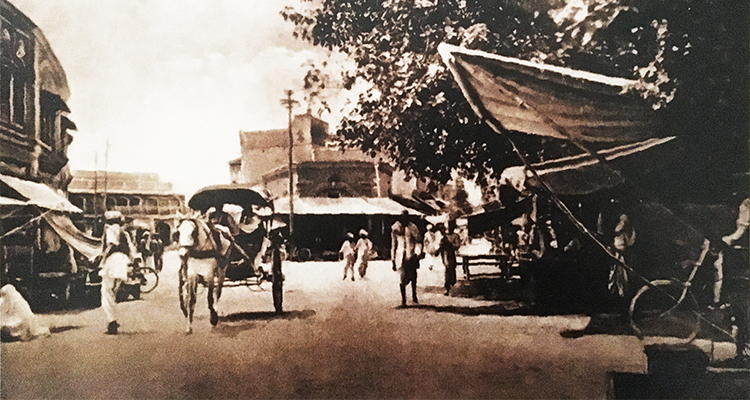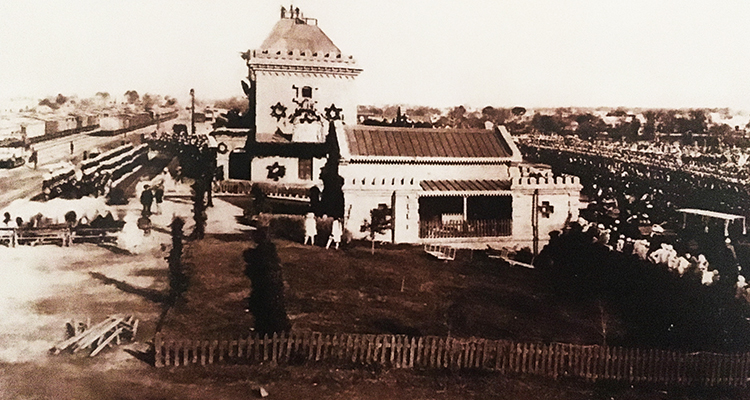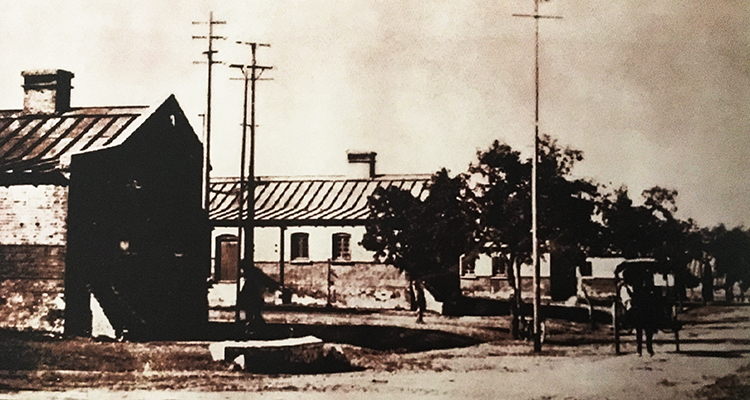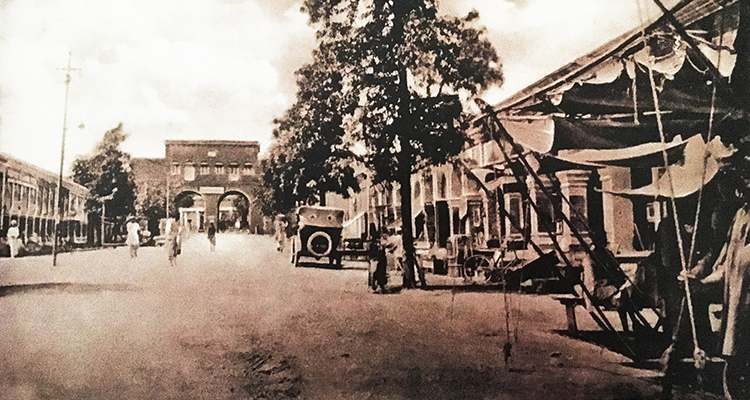Written by: Dr. Dushka H. Saiyid
Posted on: December 18, 2015 | 
The Military Accounts Office
With a foreword by Isphanyar Bhandara, the CEO and owner of Murree Brewery that has sponsored this book, it is the first of its kind on Rawalpindi. Ali Akbar Khan has done diligent research into the history of Rawalpindi that is interspersed with anecdotal accounts of the colonial period.

The book has been enriched by the treasure trove of photographs emailed to him by Neville Thomas from New Zealand. These photographs had been taken by Hal Waters, Neville’s father-in-law, who had grown up in Rawalpindi, where his father was the headmaster of the Station European School from 1884-1912. Hal had joined the North Western Railway and got an opportunity to travel all over India, and indulge his love for photography.
The book gives a historical account of the founding of Rawalpindi as a garrison town. Once the Sikhs were defeated and Punjab annexed to the British India Empire in 1849, the town of Rawalpindi on the bank of River Leh, seemed an ideal place for the centre of the northern command. Its strategic importance was greatly enhanced when it was connected to the rest of India with a railway line in 1886. All those wanting to reach Kashmir would take the train to Rawalpindi, and proceed from there by horse carriage, or in the latter days of the Empire by car.

Included in the book are extracts from the Rafique Memoirs, and similar reminiscences from Norma Probert about Rawalpindi in the first half of the 20th century, before the fabric of the society was torn asunder by Partition. Their accounts evoke an era in which different communities lived in peaceful coexistence because the colonial state’s governance was underpinned by a strong system of law and order. Ms Probert paints a vivid picture of being served nimboo-pani (a fresh lime drink) in the evenings when the family sat out in the garden or the verandah, and the pleasing smell of hot earth as the gardener watered it.
The Lalkurti area of the city had a concentration of the Anglo-Indians (of mixed European and Indian descent), who were entrusted with manning the sensitive communications sector, whether the railways or the telegraph. The Victoria Barracks that now house the General Headquarters of the Pakistan Army, are also in the same vicinity. The author has included some fascinating vignettes, but without giving the sources. He quotes from a “recent” speech by an Anglo-Indian in Sydney about the role played by his community in British India, and their emigration and loss of identity as a consequence of Partition; a glimpse into a community that is no more, and insight into a unique slice of social history.

A Parsi who left a mark on Rawalpindi was Commodore Dhanjibhoy. He ran a transport service consisting of a tonga pulled by two horses, all the way to Srinagar via Murree. The famous Massey Gate, which stood at the entrance of the Saddar bazaar, housed the Dhanjibhoy library in its upper portion. The Bhandara family is now one of the few Parsis left in Rawalpindi and they own the only brewery in Pakistan; Bapsi Sidhwa, the novelist, is its most famous member.
The book is an eclectic collection of snippets of history of Rawalpindi and some of the leaders who played a role in shaping it: John Nicholson, whose monument towers over the G.T. Road as we cross the chain of Margalla Hills on the way to Taxila; some of the adventurers who visited the area and trained the Sikh armies, and T.C. Flashman who established the landmark Flashman’s Hotel on the Mall Road.

A sense of nostalgia prevails throughout the book for a bygone era. The author recalls with some pride how the Rawalpindi Review took place in the Khanna Plain ( now occupied by the Islamabad Airport), with the Prince of Wales George and Princess Mary reviewing the parade. It is only at the end that a grim reminder of the dark side of colonialism makes an appearance with mention of the Rawalpindi Experiments conducted in the 1930s and 40s in the Military Hospital. The authoritative daily Guardian is quoted as stating that, “British scientists sent hundreds of Indian soldiers into gas chambers and exposed them to mustard gas”.
Ali Khan has successfully evoked and brought to life the colonial era through an interesting amalgam of vintage photographs, long forgotten historical facts and figures that have shaped the history of Rawalpindi and its environs. It is an invaluable contribution, and strongly recommended to those who wish to understand the influences that have shaped our present identity and left an impact on the Pothohar.
You may also like: